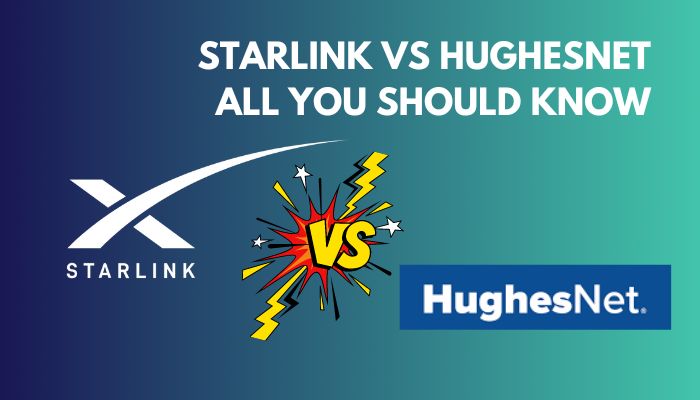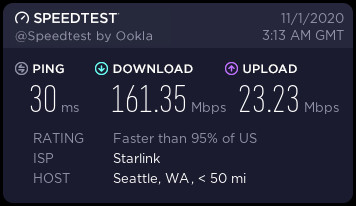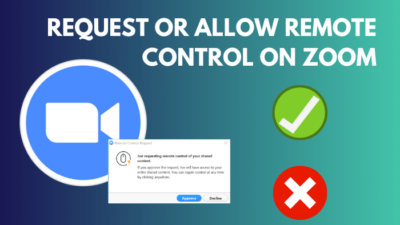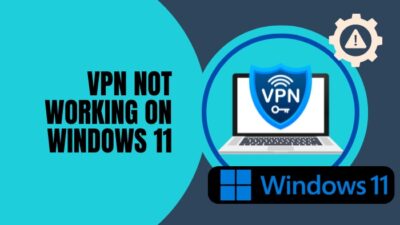Satellite networking is the ultimate game-changing networking technology. Before Starlink, there were only two satellite internet kings, HughesNet and Viasat, and these two are still in the business.

But the throne was snatched away when SpaceX launched their Satellite internet Starlink in orbit and started providing internet service to the public. Both Starlink and HughesNet are best in class for providing internet.
From their perspectives, both offer their best services to the users. Still, as a newcomer, Starlink is trying its level best.
However, which one is the best, Starlink or HughesNet? The controversy still remains!
Well, allow me to clear up this confusion. Just read this article to the end to know which is the best and why.
So, take a cup of coffee and read until the end line.
First Things to Know About Starlink and HughesNet
Before getting to the core of the comparison, there are some things that you should know about Starlink and HughesNet. Hence, without any further ado, let’s get into that.
HughesNet
Hughes Network Systems, LLC is a wholly-owned subsidiary of EchoStar. HughesNet, also known as Hughes, introduced satellite internet in 1996. At first, their internet service was known as DirecPC, and later it was renamed Direcway.
Hughes first launched broadband satellite internet for consumers in 2012 and started their networking services under HughesNet.
In October 2018, HughesNet became the number one satellite internet provider in the U.S, with 1.3 million subscribers. After Jupiter 1, they launched Jupitar 2, providing sufficient net speed to call itself Broadband, according to FCC. Jupiter 2 can provide coast-to-coast net coverage across the USA.
HughesNet uses geostationary satellites to serve the internet, located about 22,000 miles above the earth. To complete the process, a ground station first transmits signals from the earth to the satellite. After completing the signal processing, it beamed back down to earth. Then the signal is received by subscriber equipment.
The upload process is the opposite of downloading.
Starlink
It’s the project of Elon Musk’s SpaceX program. In 2019, they started launching the Starlink satellites. They launched their first beta satellite internet testing for the public In October 2020.
Like HughesNet, everything is the same, including the ground station, satellites, and dish receivers. But one thing that puts Starlink on the top list is their low earth orbiting satellites. Starlinks satellites are located only a hundred miles above the earth.
They have to launch thousands of satellites into orbit to cover as much as possible. Currently, they have almost 3,000 satellites, and they plan to launch 45,000 soon.
Starlink’s main challenge is that its satellites are not geostationary and are in constant motion. Because of this, they provide satellite trackable signal receiver dishes to the customers.
Comparison Between Starlink and HughesNet
Before starting the comparison between Starlink and HughesNet to the core, let’s look at the main differences at a glance.
| Comparison Category | HughesNet | Starlink |
|---|---|---|
| Operator | EchoStar | SpaceX |
| Download Speed | Maximum 25 Mbps | 100-200 Mbps |
| Upload Speed | Maximum 3 Mbps | 20-50 Mbps |
| Latency | Minimum 600 ms to maximum 1200 ms | 20-50 ms |
| Online Gaming | No | Yes |
| VPN | No | Yes |
| Monthly Data Limitations | Yes, from 10-50 GB | None |
| Monthly Subscription Fee | From $59.99 to $149.99 | From $110 to $5,000 |
| One-time Upfront Cost | $449 | $599 |
| Installation Fee | Required for leasing equipment | $0 |
| Early Cancellation Fee | Up to $400 | $0 |
| Contract Period | 24 Months | None |
Here are the main differences between Starlink and HughesNet:
1. Speed
Speed is the main factor when you are talking about an internet connection. Speaking of the satellite internet, both Starlink and HughesNet offers good bandwidth. But Starlink provides more bandwidth than HughesNet.
Let’s take a look at the download and upload speeds of both.
Download & Upload Speed
The maximum download speed of HughesNet is 25 Mbps, and the upload speed is 3 Mbps at max. But Satrlink’s net speed surpasses HughesNet with great numbers.
Starlink’s Download speed is 100 – 200 Mbps, and the upload speed is 20 – 50 Mbps, which is more than enough to beat HughesNet in terms of network speed. Shortly, Starlink is planning to provide 300 Mbps to its subscribers. For this, they will have to launch more satellites into the sky.
So, if we compare both their download and upload speed, Starlink is clearly the winner here.
2. Latency
Latency is the biggest issue with every satellite internet connection because satellites have to receive and send network signals. When the satellites are far away from earth, latency is a must.
HughesNet’s latency is close to 600 – 800 ms, which is huge in terms of Starlink. In contrast, Starlink’s latency is between 20 – 50 ms, and you can play any game with this low ping.
With 50 ms latency or ping, you can play any decent online game. For any satellite internet, 20 – 50 ms ping is unbelievable, and Starlink made this possible due to their low earth orbit (LEO) satellites.
So, to speak frankly, in the latency section, Starlink snatched the winning title again for providing low latency.
3. Reliability
Like any other broadband service, you can’t fully rely on this satellite internet because you have to use a signal receiver dish and install it outside in an open space. Natural phenomena like heavy rains, snow and ice can easily interrupt network signals.
Due to heavy rain and snow, it becomes difficult for the receivers to receive the beamed back signals from the satellites. In addition, obstructions like trees, buildings, roofs and other things can cause network interruptions.
Starlink and HughesNet satellite internet will be less reliable than any other available broadband. So, it’s a tie here.
4. Data Cap
The data cap is the next thing an internet subscriber will want. Normally, a user will go for an internet connection that provides unlimited data. But before Starlink, it was unimaginable that a satellite net provider would offer unlimited data bundles to its subscriber.
There is no monthly data limitation to Starlink, but on the other hand, HughesNet has data cap limitations. HughesNet’s monthly internet plans stated that their data cap limitations started from 10GB to 50GB.
So, Starlink wins a plus point in this comparison for no data cap limitations.
5. Cost
Speaking of cost, HughesNet has four internet packages available, and as I said before, all its monthly plan’s data caps are limited. The monthly package of HughesNet starts from $59.99 for 20GB, $69.99 for 30GB, $149.99 for 50GB. HughesNet’s upfront one-time cost is $449.
Please keep in mind that for Netflix, Youtube, Hulu, and Disney+, you shouldn’t go for HughesNet.
On the other hand, Starlink has Residential, Business, RV and Maritime packages. You will have to pay $110/month for Residential, $500/month for Business, $135/month for RVs and $5,000/month for the Starlink Maritime package.
The upfront cost is the highest for the Maritime package, and it’s almost $10,000 for two high-performance terminals.
So, the winner in the cost section is HughesNet because the monthly service cost and the up-front cost are cheaper in HughesNet than in Starlink.
6. Cancellation Policy
SpaceX’s Starlink will not ask any customer to sign a contract for getting an internet connection. All the monthly plans have sufficient network bandwidth, and you can cancel anytime without fees.
You can also restart your connection, which is a huge bonus point for Starlink.
Conversely, when you take HughesNet as your satellite internet connection, you must sign a 24-month contract. Based on monthly plans, subscribers must pay up to $400 as an early cancellation fee.
Moreover, HughesNet will charge you $300 if you don’t return their leased internet equipment within 45 days of cancellation. Plus, you will have to pay $100 – $150 as a de-installation charge when the satellite receiver is installed on top of your roof.
So, you will need extra cash to take HughesNet as your satellite ISP. HughesNet loses a point in the comparison battle against Starlink based on all the bindings and cancellation fees.
7. Equipment Setup Process
Starlink internet receiver equipment is designed in such a way that anyone can install it. All you need to do is install the signal receiver dish in an open space without any obstruction. Later, turn on the power supply unit.
There are built-in motors in the receiver dish, for this Starlink dish can orient itself according to the satellite’s orbital direction.
The next process is to connect the black ethernet cable from the PSU to the antenna and the white ethernet cable to the Starlink router. Moreover, you can buy mounts and accessories from Starlink and aftermarket also.
To install HughesNet, you will need professionals because you will need to align the dish to the satellites properly. The main reason for this is their satellites are in the geostationary orbit. Installation service is free, and it’s included with the equipment fee.
So, it’s a tie for HughesNet and Starlink. The reasons are simple, without DIY installation, you will need to pay extra money for Starlink’s professional installation and mounting accessories.
Conversely, HughesNet installation is free, but you will need professionals for installation.
8. Gaming & VPN
With HughesNet, you can’t game on their internet because of high latency. Their internet has extremely high ping, around 600 – 100 ms. For decent online gaming, you will need at least 50ms ping. So, it’s clear that gaming is almost impossible on HughesNet.
But Starlink claims you will find latency below 50ms on their network, which is pretty true. Plus, they have higher internet bandwidth compared to HughesNet. So, anyone can game on Starlink.
SpaceX already announced that in the coming years, they would cut down that ping to below 20ms. If they can do that, it will be a game-changer for the entire satellite internet community.
Speaking of VPNs, you can’t use them with HughesNet internet, but Starlink has no restriction on using VPNs. You can work smoothly after adding a VPN with Starlink internet.
So, Starlink wins the final comparison too.
Starlink vs. HughesNet: Which One is The Best?
Compared to HughesNet, Starlink has better download and upload speed, lower latency, and no data cap limitations. Moreover, HughesNet has a high amount of early cancellation charge, and subscriber needs to sign a 24-month contract, but Starlink subscribers don’t need to pay that charge.
Starlink satellite receiver installation is easy, and anyone can install that. If you need any professionals, you can hire them too. But to install HughesNet receivers, you must need professional help.
Besides, You can game on Starlink but not in HughesNet, which takes Starlink to the top. Also, you can use VPN with Starlink, and HughesNet lacks this feature.
So, if we look at every comparison result, Starlink is the clear winner here and claims the best position against HughesNet.
FAQs
Is Starlink faster than HughesNet?
Starlink is definitely faster than HughesNet. Starlink offers 100-200 Mbps, and HugeshNet only provides a maximum of 25 Mbps internet bandwidth.
Does HughesNet use Starlink?
Starlink is joining with HugeshNet and Viasat’s Exede as a last resort internet service provider. The main goal of this collaboration is to provide internet in rural areas where no cable or fiber network hasn’t reached yet.
Is Starlink fast enough for streaming and gaming?
Starlink advertised a minimum of 100 Mbps download speed to their subscribers. With that speed, you can stream Netflix and others with HD resolution. They also promote below 50ms latency on their network, and that’s good enough for online gaming.
Final Words
As a newcomer to the Satellite internet sector, Starlink is far ahead of any other satellite internet provider right now. Though HughesNet was once the number one in the entire USA region, Starlink snatched that spot in a short time.
I hope you read the whole article and clearly understand why Starlink is the best in providing satellite internet. The main bonus point goes to Starlink for unbeatable upload and download speed.
Plus, unbelievably lower latency for satellite internet. Hope one day they will cover the entire world with their blazing fast internet.
For more information, knock me in the comment section. Peace out!



